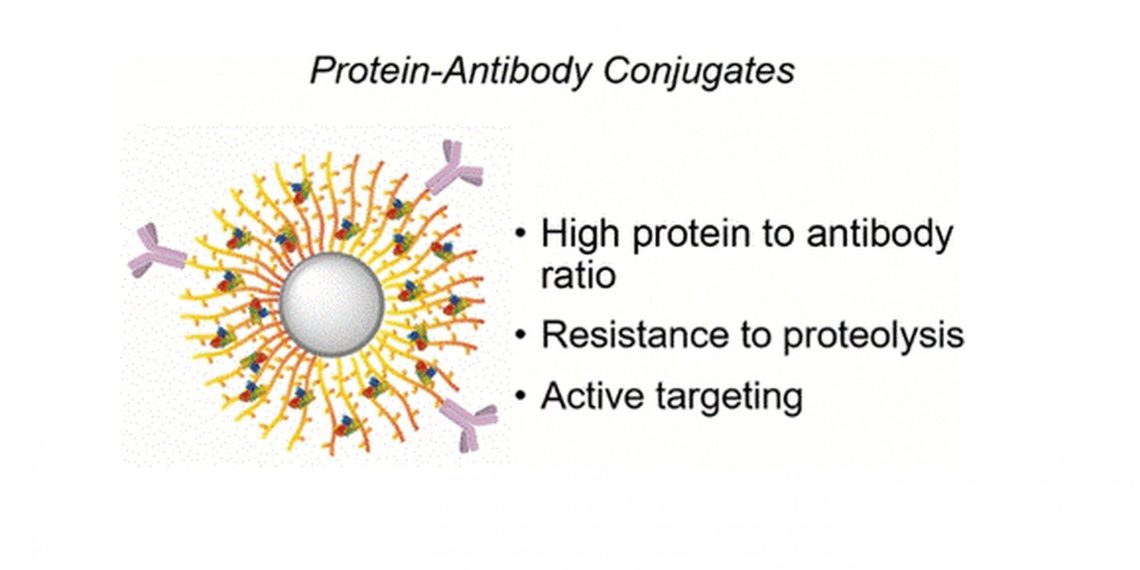Antibodies can specifically recognise cancer cells. This makes it possible to introduce drug molecules into cancer cells in a targeted manner. Scientists have now constructed a cargo system with which even large drug proteins can be brought into the cells. As they explain in their study in the journal Angewandte Chemie, the proteins reach their destination intact and well protected from proteases by polymer brushes.
When developing active substances against cancer, researchers always have two problems in mind: on the one hand, an active substance must be designed in such a way that it kills body cells; on the other hand, it must only exert its effect in the target cell itself. Many physicians therefore advocate the concept of a cargo package: the drug remains protected and packaged until it reaches its destination, and antibodies that dock only at the cancer cell help in the “address search”.
Such antibodies recognise certain receptor structures on the cell membrane of the cells. They dock there and the cell transports the active substance into it. However, this does not work with larger drug proteins. These proteins are often water-soluble and cannot pass through the cell membrane. Another problem is posed by the body’s own proteases, which degrade the transported protein drugs before they reach their destination.
Sankaran Thayumanavan and colleagues at the University of Massachusetts in Amherst (USA) have now developed a specially protected nano cargo package that meets the requirements of addressing and cargo integrity. They used spheres of silicon dioxide with a diameter of just under 200 nanometres as the carrier material. They covered their surface with double-functionalisable polymer threads like a brush, so that small “brush balls” were created.
The team attached the desired protein agent and the antibody to the polymer bristles using simple chemical click reactions. The antibodies were now on the very outside of the finished package balls, while the proteins were well protected further inside in a forest of polymer threads, the scientists reported.
Besides the possibility of transporting water-soluble proteins, this type of protein-antibody conjugates (PACs) offers another special advantage, the group says:
“There is the possibility with this format to achieve a high protein-antibody ratio.”
With the current antibody-drug combinations, one (expensive) antibody can only deliver a maximum of four molecular drugs into the cell. With PACs, a loading of more than 10,000 transported proteins per antibody is theoretically possible, they calculated.
The scientists tested their system on various cell cultures with different antibodies and test proteins. As planned, the enzymes reached the target in the cell and unfolded their lethal effect.
Next, they would like to find out whether the cargo packages can be repelled by the body’s own macrophages. However, there is reason for confidence: because of the functionalisation with the polymer polyethylene glycol and the antibodies on the surface, a rapid uptake in the body is rather to be expected with low macrophage activity at the same time.

















